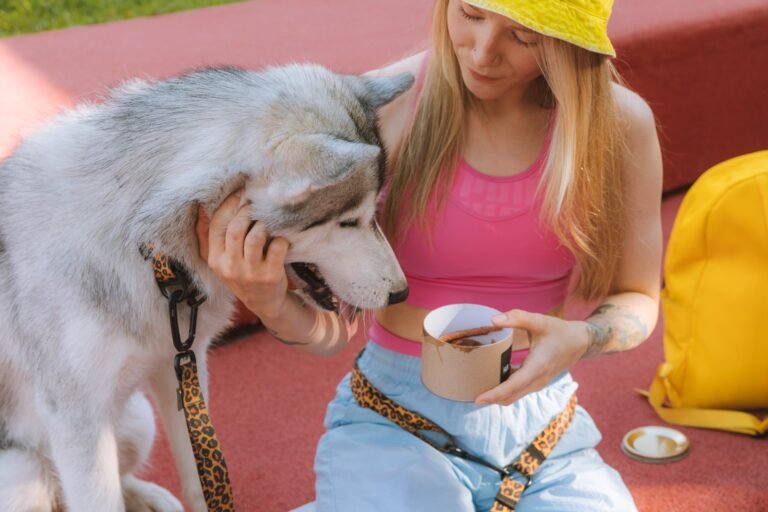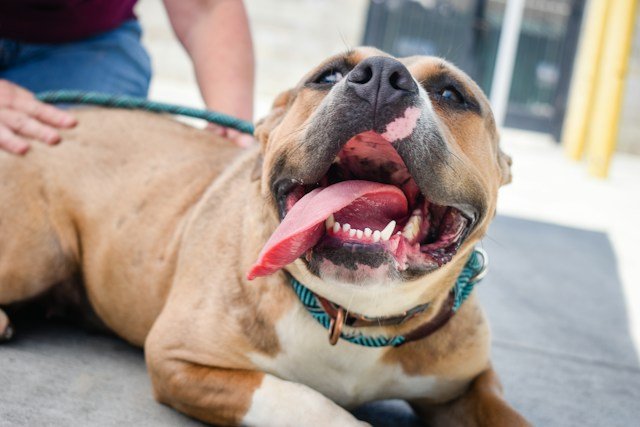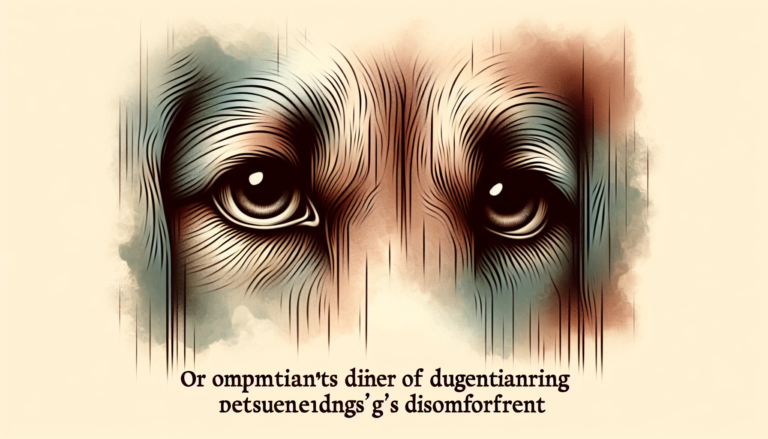Protecting Your Pup: A Comprehensive Dog Vaccination Schedule
The Importance of Dog Vaccinations
Maintaining your dog’s health is a top priority and a crucial part of that is adhering to a regular dog vaccination schedule. Vaccines play a significant role in keeping your dog healthy by protecting them from potentially harmful diseases.
Understanding the Role of Vaccines
Vaccines work by stimulating the dog’s immune system to create a defense against specific diseases. If your dog is exposed to the disease after vaccination, their immune system is better prepared to fight it off or to reduce the severity of the disease.
Dog vaccinations are categorized into two groups: core vaccines and non-core vaccines. Core vaccines are recommended for all dogs, regardless of their lifestyle, as they protect against severe diseases that are widespread and have a high risk of transmission. Core vaccines include those for distemper, hepatitis, parainfluenza, and parvovirus (AKC).
Non-core vaccines, on the other hand, are optional and may be recommended based on your dog’s lifestyle and risk factors (PetMD).
Benefits of Vaccinating Your Dog
There are numerous benefits to vaccinating your dog. Not only does it protect your dog from potentially serious diseases, but it also helps prevent the spread of these diseases to other animals and even humans (AVMA).
Vaccination also contributes to overall community health by helping to control diseases that can be transferred between dogs. This is particularly important in areas where there are high concentrations of dogs, such as dog parks, boarding kennels, and veterinary clinics.
In terms of advancements, canine vaccinations have progressed significantly in the past decade. This has made them safer and more effective against both existing and emerging pathogens, providing even more reason to ensure your dog stays up-to-date on their vaccinations (PetMD).
Sticking to a regular dog vaccination schedule is a crucial part of ensuring your dog leads a healthy and happy life. In addition to vaccinations, it’s equally important to pay attention to other aspects of your dog’s health like their weight (dog weight management), diet (dog nutrition guidelines), and overall well-being (signs of a healthy dog). To learn more about keeping your dog healthy, check out our general dog health tips.
Core Vaccinations for Dogs
Core vaccinations are essential and recommended for all dogs, regardless of their lifestyle, as they protect against severe diseases that are widespread and have a high risk of transmission (PetMD). These include distemper, parvovirus, adenovirus, and rabies.
Distemper, Parvovirus, Adenovirus
The DHPP vaccination, standing for distemper, hepatitis, parvovirus, and parainfluenza, is a crucial part of your dog’s vaccination schedule. It’s recommended that puppies receive their first DHPP vaccination between 6-8 weeks of age, with boosters given every 3-4 weeks until they are 16-20 weeks old. After that, annual boosters are recommended (AKC).
| Age | DHPP Vaccination |
|---|---|
| 6-8 weeks | First Vaccination |
| Every 3-4 weeks until 16-20 weeks | Booster Vaccinations |
| Annually | Booster Vaccinations |
These vaccines offer protection against:
- Distemper: A highly contagious and serious disease caused by a virus that attacks the respiratory, gastrointestinal, and nervous systems of puppies and dogs.
- Hepatitis (Adenovirus): A viral disease that primarily affects the liver.
- Parvovirus: A highly contagious viral disease that can cause severe diarrhea and vomiting.
- Parainfluenza: A highly contagious respiratory virus often associated with kennel cough.
Rabies Vaccination
Rabies vaccination is a legal requirement in most states. It’s generally administered to puppies at 12-16 weeks of age, with a booster one year later, then every 1-3 years depending on local regulations (AVMA).
| Age | Rabies Vaccination |
|---|---|
| 12-16 weeks | First Vaccination |
| 1 year after first vaccination | Booster Vaccination |
| Every 1-3 years thereafter | Booster Vaccinations |
Rabies is a fatal disease that can be transmitted to humans, so it’s crucial for your dog to be vaccinated against it. It’s also important to keep a copy of your dog’s rabies vaccination certificate as proof of vaccination, especially when travelling or relocating.
Remember, maintaining a regular vaccination schedule is a vital part of ensuring your dog’s health. Consult with your veterinarian to create a personalized dog vaccination schedule that suits your pet’s needs, lifestyle, and risk factors.
Optional Vaccinations for Dogs
In addition to the core vaccinations, there are several non-core or optional vaccinations that are recommended based on a dog’s individual risk factors and lifestyle. These vaccines protect against diseases that are less common or have a lower risk of transmission (PetMD). These should be discussed with a veterinarian based on your dog’s lifestyle and risk factors (AKC).
Lyme Disease Vaccination
The Lyme disease vaccine protects dogs from the disease spread by ticks. This vaccine is particularly important if your dog spends a lot of time outdoors in wooded areas where ticks are commonly found. The Lyme disease vaccination should be given to puppies at eight or nine weeks. There are two vaccines that are administered two to four weeks apart, with an annual booster. The administration of Lyme disease vaccines depends on your dog’s lifestyle (Pet Medical).
| Lyme Disease Vaccination | Age | Administration |
|---|---|---|
| First Dose | 8-9 weeks | Injection |
| Second Dose | 2-4 weeks after the first dose | Injection |
| Annual Booster | Annually | Injection |
Bordetella (Kennel Cough) Vaccination
The Bordetella vaccination prevents kennel cough, a highly contagious respiratory disease that is often spread in places where dogs congregate, like kennels and dog parks. This vaccine can be administered orally, nasally, or through injection depending on your veterinarian’s recommendation. The oral vaccine is given at eight weeks with an annual booster, the nasal vaccine starts at three to four weeks old, and the injection starts at eight weeks with two shots given two to four weeks apart (Pet Medical).
| Bordetella Vaccination | Age | Administration |
|---|---|---|
| Oral Vaccine | 8 weeks (annual booster) | Oral |
| Nasal Vaccine | 3-4 weeks | Nasal |
| Injectable Vaccine | 8 weeks (two shots given 2-4 weeks apart) | Injection |
Leptospirosis Vaccination
The Leptospira vaccination protects dogs against a bacteria that can cause kidney damage and should be given to puppies at eight or nine weeks. Dogs who are at risk of exposure to the bacteria, which can be found in contaminated water sources, are recommended to get this vaccine. It is administered in two parts, with a two to four-week interval between doses, and requires an annual booster (AKC, Pet Medical).
| Leptospirosis Vaccination | Age | Administration |
|---|---|---|
| First Dose | 8-9 weeks | Injection |
| Second Dose | 2-4 weeks after the first dose | Injection |
| Annual Booster | Annually | Injection |
A well-rounded dog vaccination schedule is a key component of ensuring a healthy dog. Be sure to consult with your veterinarian to tailor the vaccination plan to your dog’s lifestyle and risk factors.
Your Dog’s Vaccination Schedule
Keeping your dog’s vaccinations up-to-date is a critical part of ensuring his or her health. Here’s a look at the typical dog vaccination schedule, starting with puppies and moving on to adult dogs.
Puppy Vaccination Timeline
Puppies should receive their first vaccination between 6-8 weeks of age, with boosters given every 3-4 weeks until they are 16-20 weeks old (AKC, AVMA). This includes the DHPP vaccination, which stands for distemper, hepatitis, parvovirus, and parainfluenza. This five-in-one vaccine should be given to puppies starting at six weeks of age, with vaccinations spread out every two to four weeks after the first shot, with the last shot administered by sixteen weeks of age (Pet Medical).
Rabies vaccination is also critical for your puppy. Most states in the US require dogs to be vaccinated against rabies by the age of 3 months and then receive a booster vaccine one year later. After the initial vaccination, the frequency of booster shots can vary by state (Animal Law Info).
Here’s a typical puppy vaccination schedule:
| Age | Vaccination |
|---|---|
| 6-8 weeks | First DHPP |
| 10-12 weeks | Second DHPP |
| 12-16 weeks | Rabies, Third DHPP |
| 16-20 weeks | Final DHPP |
Adult Dog Vaccination Schedule
After puppies reach their first birthday, they transition to an adult dog vaccination schedule. Rabies vaccinations are typically administered every 1-3 years, depending on local regulations (AVMA).
Other vaccinations, such as DHPP, may also be given annually or every 3 years, depending on your veterinarian’s recommendations and your dog’s overall health and lifestyle. Always consult with your veterinarian to determine the best vaccination schedule for your dog.
Here’s a typical adult dog vaccination schedule:
| Age | Vaccination |
|---|---|
| 1 year | Rabies booster, DHPP booster |
| 2 years | DHPP booster (if needed) |
| 3 years | Rabies booster, DHPP booster |
Remember, a vaccination is an essential part of your dog’s healthcare routine, but it’s not the only aspect. Regular exercise, good nutrition, and routine check-ups are also vital to keeping your dog healthy. For more advice on keeping your dog in peak condition, check out our dog health tips and dog nutrition guidelines.
Side Effects and Risks of Vaccination
As you navigate your pup’s dog vaccination schedule, it’s essential to understand the potential side effects and risks associated with vaccines. While vaccines play a crucial role in protecting your dog from harmful diseases, they can sometimes lead to mild or, in rare cases, severe reactions.
Common Side Effects
Most side effects your pet can experience after getting a vaccine or booster shot are short in duration and mild in nature. These may include lethargy, slight fever, localized swelling, sneezing, and symptoms akin to a cold (Rosemarie Pet Hospital). These side effects typically subside on their own and are generally less dangerous than the illnesses the vaccinations protect against.
Monitoring your dog after a vaccine can help you quickly identify any side effects. Look for any changes in your dog’s behavior or physical condition. If your dog seems unusually lethargic or is showing other signs of discomfort, it’s a good idea to consult your vet.
Serious Adverse Reactions
While rare, more severe reactions to dog vaccines can occur. These can include itchiness, hives, facial swelling, diarrhea, vomiting, and difficulty breathing. Anaphylaxis, the most severe allergic reaction to vaccines, can occur shortly after vaccination or up to 48 hours later (Rosemarie Pet Hospital).
Any signs of a severe reaction require immediate medical attention. If your pet shows symptoms of anaphylaxis, it’s crucial to contact your vet immediately or visit the nearest emergency veterinary clinic.
If your pet has had a reaction to vaccines in the past, be sure to inform your vet. They may recommend skipping specific vaccinations in the future to ensure your pet’s safety. Additionally, smaller dogs, especially those of small or miniature breeds, have a higher risk of developing side effects when multiple vaccinations are administered at once. In such cases, your vet may suggest spacing out the vaccinations over a few days instead of administering them all at once (Rosemarie Pet Hospital).
As always, your vet is the best source of advice when it comes to your dog’s health and wellbeing. Regular check-ups, a balanced diet, and a proper dog nutrition guidelines are just as important as following a vaccination schedule. Remember, a healthy dog is a happy dog!
Personalizing Your Dog’s Vaccination Plan
While there are general guidelines for a dog vaccination schedule, it’s important to remember that each dog is unique. A personalized vaccination plan, taking into account your pet’s individual needs and risk factors, is key to maintaining your dog’s health.
Consulting with Your Veterinarian
When it comes to vaccinations, a one-size-fits-all approach doesn’t work. Vaccination schedules for dogs may vary depending on factors such as the age of the dog, risk factors, and local regulations, so it is important to consult with a veterinarian to determine the appropriate schedule for your pet (AVMA).
For instance, a veterinarian may recommend certain vaccines earlier or later than the general guidelines based on your dog’s specific needs. If your pet has had a reaction to vaccines in the past, it is important to inform the vet. The vet may recommend skipping specific vaccinations in the future, or suggest spacing out the vaccinations over a few days instead of administering them all at once, especially in smaller dogs who have a higher risk of developing side effects when multiple vaccinations are given at once (Rosemarie Pet Hospital).
Tailoring to Your Dog’s Lifestyle and Risks
The lifestyle and specific risk factors of your dog will also play a significant role in determining the necessary vaccinations. Noncore vaccines are optional and should be based on a dog’s individual risk factors and lifestyle, as they protect against diseases that are less common or have a lower risk of transmission (PetMD).
For example, if your dog spends a lot of time outdoors in areas known for ticks, your vet may recommend a Lyme disease vaccination. Conversely, if your dog is mostly indoor and doesn’t interact with other dogs often, certain vaccinations may not be necessary.
To provide the best care for your pup, it’s essential to keep open lines of communication with your vet and update them on any changes to your dog’s lifestyle or health. Regular check-ups, a balanced diet following our dog nutrition guidelines, and appropriate weight management (dog weight management) are other key elements of ensuring your dog’s overall wellbeing.
Remember, a healthy dog is a happy dog. Understanding and personalizing your dog’s vaccination schedule is a great step towards ensuring a long, happy life for your furry friend.







